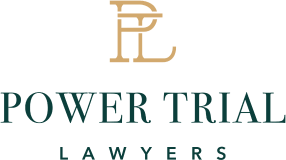- Free Consultation: (888) 808-2179 Tap Here to Call Us
Youth Offender Parole in California: How an Orange County Criminal Defense Lawyer Can Help
In recent years, California has undertaken significant criminal justice reforms, particularly concerning individuals who committed crimes as juveniles or young adults. Central to these reforms is the concept of “Youth Offender Parole” (YOP), a process that recognizes the unique psychological and developmental differences between young offenders and adults. For those in Orange County, Los Angeles and California, this legal provision offers a critical opportunity to reassess sentences that were imposed without fully considering the potential for growth and rehabilitation inherent in youth. This article delves into the nuances of Youth Offender Parole, providing in-depth analysis and legal insights to help you understand its implications and the vital role of a skilled Orange County Criminal Defense and Appeals Lawyer in navigating this complex terrain.
Understanding Youth Offender Parole: A Paradigm Shift in Juvenile Justice
Youth Offender Parole represents a paradigm shift in how the criminal justice system treats those who committed crimes before reaching full adulthood. Historically, the justice system has been criticized for imposing harsh sentences on young offenders without accounting for the significant psychological and neurological differences between adolescents and adults. Research shows that parts of the brain responsible for impulse control, decision-making, and understanding long-term consequences are not fully developed until the mid-20s. As a result, many young offenders were sentenced to life terms without a realistic possibility of parole, effectively condemning them for actions taken in the throes of youth.
California’s Youth Offender Parole law addresses these concerns by mandating that the Board of Parole Hearings (BPH) give “great weight” to youth-related factors when determining parole suitability. These factors include:
- Age at the Time of the Crime: Recognizing that younger individuals have less impulse control and a diminished ability to understand the full consequences of their actions.
- Level of Maturity: Evaluating the offender’s maturity level at the time of the crime, including susceptibility to peer pressure and the influence of older co-defendants.
- Capacity for Change: Considering evidence of the offender’s growth and rehabilitation since their incarceration.
The BPH is required to place significant emphasis on these factors when making parole decisions, meaning that even those who committed serious offenses may now have an opportunity for early release if they can demonstrate substantial personal growth.
Legal Eligibility for Youth Offender Parole: Are You or Your Loved One Qualified?
Eligibility for Youth Offender Parole is determined by several specific criteria. Understanding these criteria is crucial for those seeking to navigate this legal avenue:
- Age at the Time of the Offense: The crime must have been committed before the offender turned 26 years old. This broad age range reflects the scientific understanding that brain development continues well into the mid-20s.
- Type of Sentence: The individual must be serving either a determinate sentence (a fixed number of years) or an indeterminate sentence (such as life with the possibility of parole) for a crime committed before age 26. Additionally, those sentenced to life without the possibility of parole (LWOP) for crimes committed before age 18 may also be eligible.
- Exclusions: Certain categories of offenders are excluded from YOP hearings, such as those with “three strikes” sentences or “one strike” sex offense sentences. Additionally, if an individual commits a new crime after turning 26, particularly if it involves “malice aforethought” (e.g., first-degree murder, attempted murder), they may be excluded from YOP eligibility.
Navigating these eligibility criteria can be complex, especially when dealing with prior convictions or complicated sentencing structures. Consulting with an experienced Orange County Criminal Appeals and Defense Lawyer is essential to ensure that all potential avenues for parole are thoroughly explored.
Franklin Hearings: Building a Strong Case for Parole
A critical component of the Youth Offender Parole process is the Franklin hearing, named after the landmark case People v. Franklin (2016). This hearing allows offenders to establish a record of mitigating evidence related to their youth, which was not presented during the original sentencing. The importance of a Franklin hearing cannot be overstated—it provides an opportunity to document the offender’s immaturity at the time of the crime and their subsequent growth and rehabilitation.
During a Franklin hearing, the court will consider:
- Youth-Related Factors: The circumstances surrounding the offender’s life at the time of the crime, including family environment, education, and any history of abuse or neglect.
- Rehabilitative Efforts: Evidence of the offender’s efforts to reform, such as participation in educational programs, vocational training, and therapy while incarcerated.
- Expert Testimony: Psychological evaluations and expert testimony can be pivotal in establishing the ongoing development and rehabilitation of the offender, reinforcing the argument for early parole.
A well-prepared Franklin hearing can significantly enhance the chances of securing a favorable outcome at a Youth Offender Parole hearing. However, this requires meticulous preparation and a deep understanding of both the legal standards and the psychological principles involved. An experienced Orange County Criminal Appeals and Defense Attorney can play a crucial role in gathering the necessary evidence, presenting it effectively, and advocating on behalf of the offender.
The Comprehensive Risk Assessment (CRA): A Key Determinant of Parole Outcomes
One of the most critical elements of the Youth Offender Parole process is the Comprehensive Risk Assessment (CRA), a report prepared by a BPH psychologist or by an expert. This assessment evaluates the offender’s potential risk of reoffending if released on parole. The CRA considers factors such as the nature of the original crime, the offender’s behavior in prison, and any psychological issues that may influence future behavior.
Working with the right expert is instrumental to a strong and meaningful outcome. Consult with your lawyer to assess who the expert assigned to your case will be.
The CRA is a double-edged sword—it can either bolster or undermine an offender’s chances of securing parole. A high-risk assessment can lead to parole denial, often for several years. Conversely, a low-risk assessment can support the case for early release. Moreover, choosing the right expert is essential to a strong and comprehensive risk assessment. Preparing for the CRA involves:
- Reviewing Past Reports: Understanding past psychological evaluations and probation reports to anticipate the issues that may arise during the CRA.
- Addressing Deficiencies: Engaging in therapy or rehabilitation programs that target the specific areas of concern identified in previous assessments.
- Legal Guidance: Working closely with an attorney to prepare for the CRA, ensuring that all positive developments are clearly documented and communicated.
Given the weight the BPH places on the CRA, it is imperative that offenders and their attorneys approach this assessment with a strategic plan. A Criminal Defense Lawyer in Orange County with experience in Youth Offender Parole cases can provide the necessary guidance and support to navigate this critical phase.
Timing Is Everything: Understanding Your Parole Eligibility Date
The timing of your Youth Offender Parole hearing is determined by the length and type of your sentence. This timing is crucial because it dictates when you will be eligible for a hearing and, potentially, for release.
- Determinate Sentences: For those serving a determinate sentence, the parole eligibility date typically occurs after 14 years of incarceration.
- Indeterminate Sentences: For indeterminate sentences of less than 25 years to life, the eligibility date is after 19 years. For sentences of 25 years to life or more, or for those sentenced to life without the possibility of parole for crimes committed before age 18, the eligibility date is after 24 years.
Understanding these timelines is critical for strategic planning. Early preparation is key—engaging in rehabilitative programs, maintaining a spotless record, and consistently documenting your progress are all vital steps in building a strong case for parole. Moreover, your eligibility date can sometimes be adjusted based on factors like good behavior or participation in educational programs, making it even more essential to stay proactive throughout your incarceration.
The Strategic Advantage of Legal Representation
The complexity of the Youth Offender Parole process cannot be overstated. From determining eligibility to navigating Franklin hearings and preparing for the CRA, each step requires careful legal maneuvering and strategic decision-making. This is why the expertise of an Orange County Criminal Defense and Appeals Lawyer is not just beneficial—it is indispensable.
- Tailored Legal Strategies: A seasoned attorney will develop a personalized strategy that addresses the specific circumstances of your case. This includes identifying key legal arguments, gathering supporting evidence, and anticipating potential challenges.
- Expert Witness Coordination: Your attorney can bring in expert witnesses, such as psychologists or social workers, to provide testimony on your behalf, strengthening your case for parole.
- Continuous Support: The parole process is emotionally and mentally taxing. An experienced lawyer provides not only legal support but also guidance and reassurance throughout the process, helping you stay focused and prepared.
Why Contacting an Orange County Criminal Defense Law Firm is Crucial
The stakes in a Youth Offender Parole hearing are incredibly high. A favorable decision could mean early release and the opportunity to rebuild your life, while a denial could extend your incarceration for years. Given these high stakes, it is essential to have a legal team that understands the intricacies of the law, the psychology of rehabilitation, and the specific dynamics of the Orange County legal system.
- Local Expertise: An Orange County Criminal Defense Law Firm is well-versed in the local courts, judges, and parole board members. This local knowledge can provide a strategic advantage in preparing and presenting your case.
- Comprehensive Legal Support: From the initial consultation to post-hearing follow-up, a dedicated legal team will ensure that every aspect of your case is handled with the utmost care and professionalism.
- Proven Track Record: A law firm with a strong history of successful parole outcomes can provide the confidence and assurance that you are in capable hands.
If you or someone you care about is eligible for Youth Offender Parole, now is the time to act. The difference between a successful and unsuccessful parole hearing often comes down to the quality of legal representation. Don’t leave your future to chance—contact a reputable Orange County Criminal Defense Law Firm today to schedule a consultation. With the right legal strategy, you can present a compelling case for your release and take the first step toward rebuilding your life.
Every day counts in the preparation for your hearing. Reach out to an experienced attorney who can guide you through this complex process, advocate for your rights, and help you secure the best possible outcome. Your future may depend on it.


















